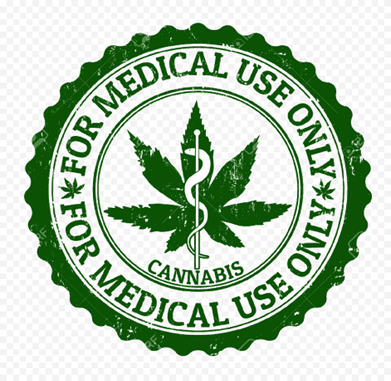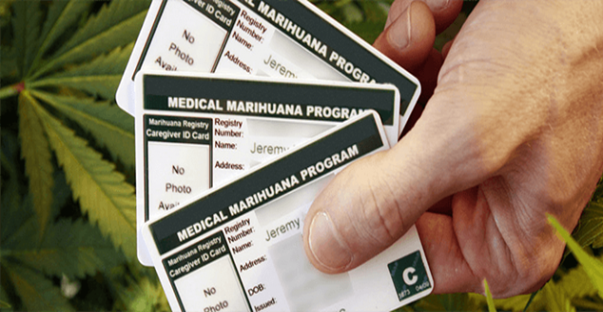Any portion of the marijuana plant that is utilized to treat health issues is referred to as Medical Marijuana.
The purpose of medical marijuana is not to get “high”. Medical marijuana has a variety of applications such as relieving pain, ease nausea, and treating loss of appetite, as well as certain indications of multiple sclerosis, and many more.
In essence, recreational marijuana is cannabis that is not utilized for medical purposes. But as there are so many strong sentiments, both pro and negative, finding medical marijuana facts can be challenging.
Florida Medical Marijuana Card
The Florida Medical Marijuana Legalization Initiative, also referred to as Amendment 2, was approved by more than 60% of Florida voters in 2016. Florida had a medical marijuana statute in existence before the approval of Amendment 2, but it was exclusively for terminally ill patients with less than a year to live. Amendment 2 added cancer, ALS, Parkinson’s illness, and Crohn’s disease to the list of medical diseases covered by the act.
Senate Bill 8A was passed a few months later, laying out the guidelines for use and administration. Furthermore, Governor DeSantis passed Senate Bill 182 into law on March 18, 2019. This proposed law made it legal to use medical marijuana. According to the amendment, patients may be prescribed medicinal marijuana if their prescribing physician feels that the benefits of using cannabis outweigh the potential health risks.
Although, notably, individuals with a medical marijuana card are not permitted to smoke the pure marijuana flower, according to the legislation. Furthermore, growing your marijuana is still prohibited. Medical marijuana cardholders, on the other hand, can ingest cannabis through sweets, vape pens, oils, sprays, or tablets obtained from a state-licensed dispensary.
Florida authorities define “any components of any Cannabis plant” to be marijuana; nevertheless, marijuana is only deemed “medical” if it is supplied to a state-qualified patient from a Medical Marijuana Treatment Center (MMTC).
Who Is Eligible for a Florida Medical Marijuana Card?
Senate Bill 8A defines a qualified patient as:
A resident of this state [Florida] who has been added to the medical marijuana use registry by a qualified physician to receive marijuana or a marijuana delivery device for medical use and who has a qualified patient identification card.
Residence Requirements
To qualify for a Florida medical marijuana card, a patient must have permanent or temporary residency in the state of Florida. Patients who meet the criteria must additionally show evidence of residence in Florida. Patients must provide one of the following papers (along with a photo ID) to establish permanent residence in Florida:
- Copy of a house deed or lease agreement
- Utility bill (no more than two months old)
- State ID or driver’s license
- Passport
Individuals who fit the criterion of seasonal residents may also qualify under Senate Bill 8A, in addition to permanent residents:
Any person who temporarily resides in this state [Florida] for at least 31 days in each calendar year, maintains a temporary residence in this state, returns to the state or jurisdiction of his or her residence at least once during each calendar year, and is registered to vote or pays income tax in another state or jurisdiction is referred to as a “seasonal resident.”
It may still be feasible to obtain a medical marijuana card if you live in another state. The Florida Department of Health, on the other hand, issues medicinal marijuana cards to non-residents on a case-by-case basis.
Qualified Condition

Patients must fulfill several conditions to lawfully use medicinal marijuana in Florida. To begin, the patient must be diagnosed with one of the qualifying conditions:
- ALS
- Cancer
- Crohn’s disease
- epilepsy
- glaucoma
- HIV/AIDS
- Seizures
- Chronic muscle spasms
- Multiple sclerosis
- Parkinson’s disease
- PTSD
In addition to this, Senate Bill 8A allows for the treatment of additional diagnosable disorders including anxiety, depression, and migraines, as well as terminal illnesses and pain produced by a qualifying medical condition that lasts longer than it should or any other illness in which a physician has concluded that the medicinal benefits of marijuana outweigh the dangers to one’s health.
A second physician must agree that medicinal marijuana is a suitable therapy if the patient is under the age of 18. In addition, the patient must have tried and failed alternative therapies. Finally, the ordering physician must register the patient with the Compassionate Use Registry.
Process of Applying for Medical Marijuana Card
Obtaining your previous medical data is the first step in receiving a medicinal marijuana card in Florida. Then you’ll need a signed physician’s statement from a doctor who has completed the state-mandated education requirements to recommend or prescribe medical marijuana and is registered with the state of Florida’s Medical Marijuana Use Registry. You must be a patient of the doctor for at least 3 months before the physician’s statement is legitimate.
The certified physician then sends their recommendation to the Florida Department of Health after determining that the patient is indeed eligible. The patient receives their website login credentials from the Florida Department of Health, after which they can pay the $75 state fee and complete their application online.
A completed application can be sent to the Office of Medical Marijuana Use. If you are unable to apply on your own, your physician or legal agent can do so on your behalf. You have the option of submitting an electronic or paper application.
The Florida Department of Health will issue clearance confirmation via email between 7-21 business days. It is, nevertheless, preferable to remain patient. It might take a long time to apply to the Office of Medical Marijuana Use. The Department of Health may even take months to examine your medicinal marijuana application and issue your card.
Patients can start buying medicinal marijuana products at this stage, even if their formal medical marijuana card hasn’t arrived yet. Patients must see their medical marijuana physician (in person) every 210 days to renew their certification, according to Florida state law.
Medical Marijuana Card Fees

You must pay two fees when applying for a medicinal marijuana card in Florida. The first charge is for a consultation with a certified physician, which varies in price. Then there’s the $75 application registration cost to consider. Additionally, there is a $75 yearly renewal charge.
What Happens After Acquiring the Medical Marijuana Card
You can acquire medicinal marijuana from a certified medical marijuana treatment center in the state of Florida once you obtain a medical marijuana card. As marijuana remains illegal under federal law, you cannot cultivate your marijuana even if you have a medicinal marijuana certificate. Marijuana can only be grown and sold by dispensing companies regulated by the state of Florida.
It’s important to remember to use medicinal marijuana properly. While it is legal to use cannabis, doing so in public may result in a confrontation with police enforcement. Additionally, marijuana consumption might impair your ability to drive a car and lead to arrest.
Conclusion
One can acquire medical marijuana in the state, Florida only by fulfilling the above-mentioned requirements. While medicinal marijuana is legal in Florida, it is not legal to take the medicine beyond state boundaries.
You might face federal and local penalties if you transport medicinal marijuana across state boundaries. Even if you’re traveling to a state where medicinal marijuana is allowed, this is true. To keep your medical marijuana card valid, you or your legal representative must submit a renewal application and pay 45 days before the card’s expiration date.
A medical marijuana card is not permitted to use cannabis in public without facing legal consequences. It is a prescription medication that is used to treat a specific set of diseases and conditions.
Reference
